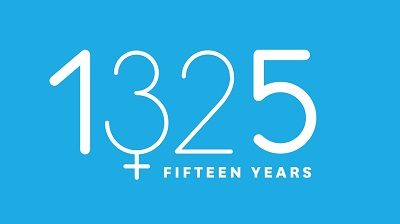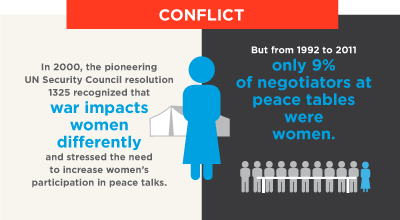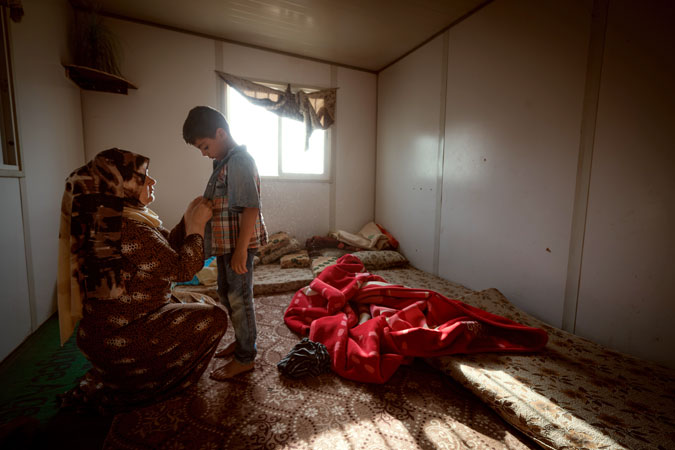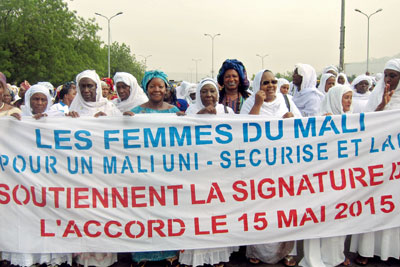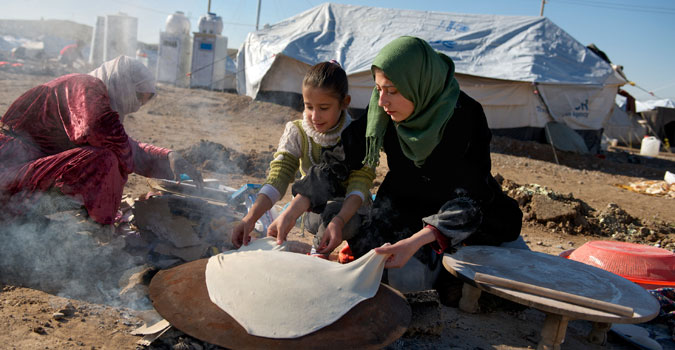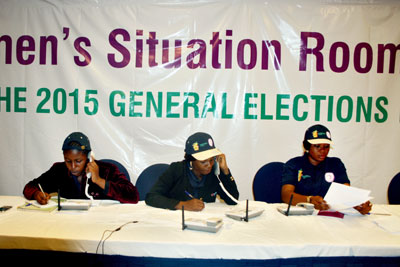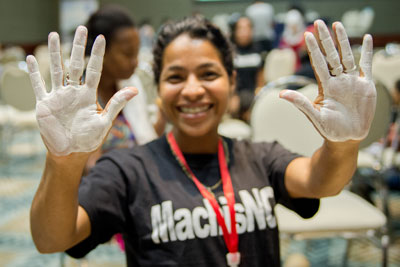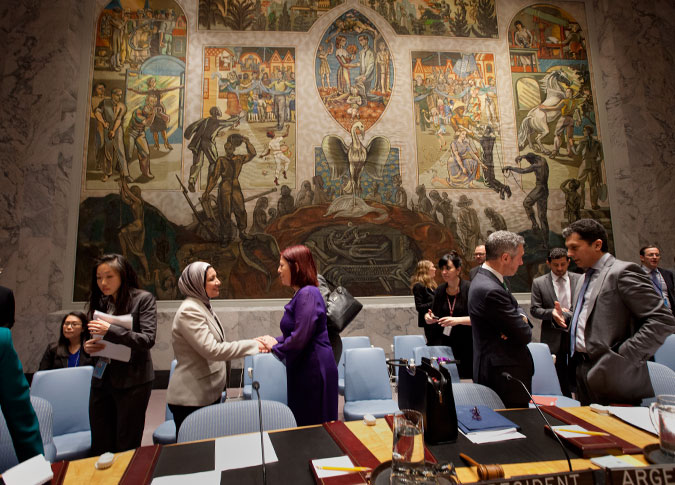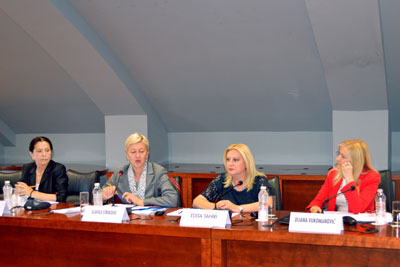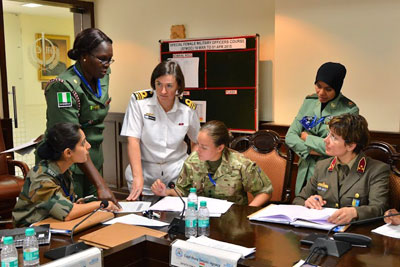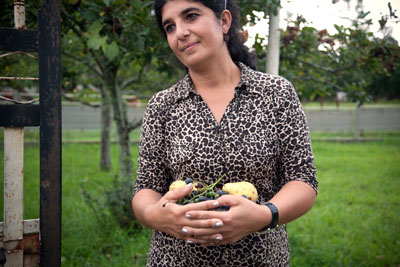High-level Review on Women, Peace and Security: 15 years of Security Council resolution 1325
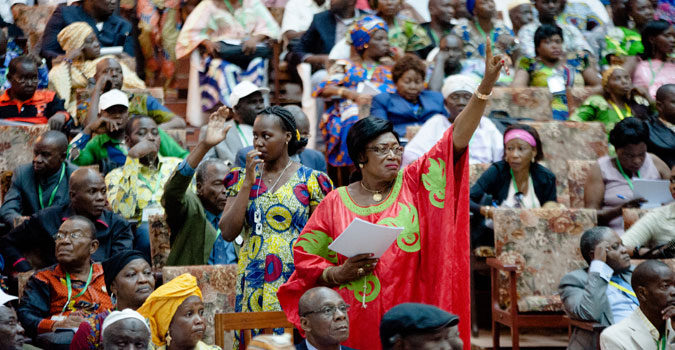
Videos |Media & speeches |Webcasts |Timeline | Feature stories |
Join the conversation |Side events |SG report |Facts & figures
Fifteen years ago, in October 2000, the United Nations Security Council adopted the historic resolution 1325 (2000), drawing attention to the differential impact of armed conflict on women, their exclusion from conflict prevention and resolution, peacekeeping and peacebuilding, and the inextricable links between gender equality and international peace and security.
Since its adoption, insecurity and conflict has continued in all parts of the world, and in recent years, it is taking on new and increasingly challenging forms. Cycles of fragility and insecurity have become entrenched in some regions, compounded in some cases by natural disasters and humanitarian crises.
The number of refugees and internally displaced persons is higher than ever before in the UN’s history: at the end of 2014, the number of forcibly placed persons rose to 59.5 million—one of the highest numbers ever recorded [1]. Many of these will remain displaced for 17 years—the average current length of displacement.
All of this is also affected by new and emerging threats, the most prominent of which is the rise of violent extremism and terrorism. Overlaid onto existing conflicts and fragile state contexts, it directly impacts the rights of women and girls: from forced marriage and systematic sexual and gender-based crimes, to restrictions on education, access to healthcare and participation in public life, this escalation in violence is perhaps one of today’s greatest threats to global peace and security, and one that affects women and girls in both unique and disproportionate ways.
It has never been more urgent for the global community to seek and implement effective solutions to today’s crises.
The past 15 years have made clear however that women are a key resource for promoting peace and stability. Research highlighted in the Global Study has established that women’s participation and inclusion makes humanitarian assistance more effective, strengthens the protection efforts of our peacekeepers, contributes to the conclusion and implementation of peace talks and sustainable peace and accelerates economic recovery.
The experience of UN peacekeeping missions shows that uniformed female personnel are critical to gaining trust in communities and shaping peace operations to better respond to their protection needs. The study also compiles growing evidence that demonstrates how peace negotiations influenced by women are much more likely to end in agreement and to endure; in fact the chances of the agreement lasting 15 years goes up by as much as 35 per cent [2]. We also have growing evidence that women are the best placed to detect early warning signs of radicalization in their families and communities, and act to prevent it.
And yet the participation and leadership of women continues to be treated as an add-on or ad hoc measure, hampered by lack of financial commitments, political will, and institutional barriers.
To assess progress and accelerate action, the 2015 High-level Review will take place at the Security Council’s Open Debate on Women Peace and Security on 13 October and the Global Study on the implementation of resolution 1325 will be launched on 12 and 14 October.
Commemorating the anniversary of UNSC resolution 1325 provides an historic opportunity for the international community to focus on the women, peace and security agenda, ensure that the rhetoric around resolution 1325 matches the reality on the ground, and that women’s participation is consistently advocated and implemented as an integral tool for building peaceful and inclusive societies.
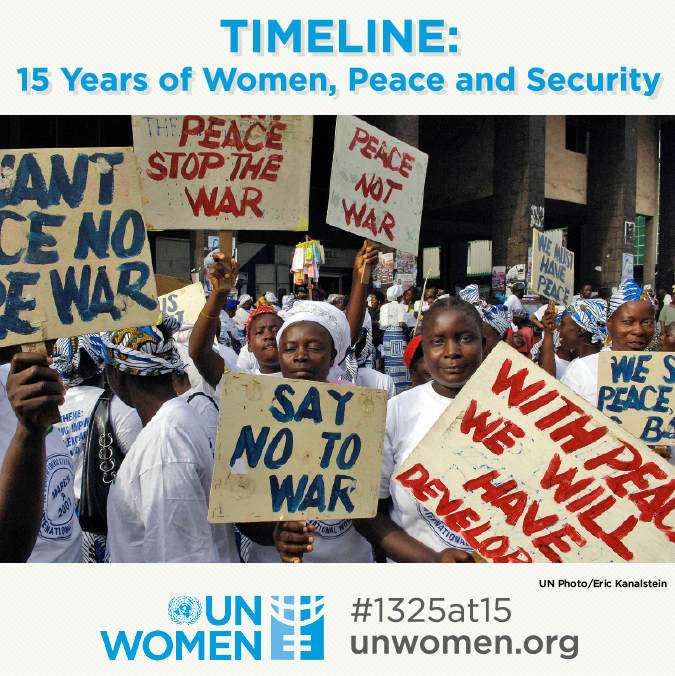
Women between war and peace
Women between war and peaceVideos
The Story of Resolution 1325 | Women, Peace and Security
When United Nations Security Council resolution 1325 (2000) was passed, it changed history. Never before had world leaders formally recognized the key contributions of women in conflict and post-conflict interventions, including their role in brokering peace, peacekeeping, and peacebuilding. On the 15th anniversary of resolution 1325, we look back at how a broad civil society movement brought this agenda to the council, and, working together with governments and UN agencies, saw the resolution through to adoption.1325: Taking the Agenda Forward | 15th Anniversary of 1325
As the world commemorates 15 years of the ground-breaking UN Security Council resolution 1325, we look at how civil society groups have been using the resolution in their work around the world as an instrument for advocacy, dialogue and advancement of women’s participation in peace and security decision-making. On the occasion of the High-level Review of women, peace and security, it’s time for implementation of resolution 1325 and recognition of women’s key contributions to preventing conflict and securing peace.
Media and speeches
- Statement by UN Women on the adoption of Security Council resolution 2242 on women, peace and security (14 October, 2015)
- Speech by UN Women Executive Director at the UN Security Council Open Debate on 13 October (13 October, 2015)
- Statement at the UN Security Council Open Debate on 13 October by Alaa Murabit, founder of the Voice of Libyan Women, a women's empowerment and development organization which focuses on women, peace and security, and member of the High-Level Advisory Group for the Global Study.
- Statement at the UN Security Council Open Debate on 13 October by Julienne Lusenge, who heads Solidarité Féminine pour la Paix et le Développement Intégral—a coalition of 40 women’s organizations in the eastern Democratic Republic of the Congo. [Original delivered in French; also available in Spanish]
- Statement at the UN Security Council Open Debate on 13 October by Yanar Mohammed, President of the Organization of Women’s Freedom in Iraq. [Original delivered in English; also available in Spanish and Arabic]
- Press release: Amidst rising extremism, women’s role in peace and recovery remains hampered and underutilized (12 October, 2015)
- Media Advisory: Press Conference on 15th anniversary of Security Council resolution 1325 and new Global Study on women, peace and security ( 7 October, 2015)
- Statement by Executive Director of UN Women Phumzile Mlambo-Ngcuka on Boko Haram (2 October, 2015)
- New study to examine women’s role in peace and security over the past 15 years (October 2014)
Events and webcasts
Watch the launch of the Global Study on 1325 on 14 October 2015 at 12 p.m.
Watch the Open Debate on 13 October 2015 beginning at 10 a.m.
Watch the press conference of the Global Study on 1325 on 12 October 2015 at 11 a.m.
Feature stories
Cash-for-work programme economically empowers Syrian refugees
More than 5,000 Syrian women and girls visit ‘Oases’ safe spaces in the Za’atari camp per month, and several hundred have independently earned incomes through UN Women’s work programme in Jordan.
Women in Mali demand equal role in Peace Accords
Before and after reaching a peace agreement in June, women leaders have been pressuring decision-makers for 50-50 representation in all bodies involved in its implementation.
Making sure women play an active role in emergency response and disaster reduction
A spotlight on UN Women’s work to ensure that women’s needs are considered and voices heard in humanitarian action and disaster planning around the world.
Women’s Situation Rooms boost peaceful voting in Africa
As countries across the African continent gear up for elections in the coming months, women are taking an active role in ensuring peaceful voting and meaningful participation, through Women’s Situation Rooms.
Women take the reins to build peace in Colombia
The voices of women as experts, survivors and negotiators have been included in a peace process with an unprecedented gender perspective, with the support of UN Women and other partners. The talks aim to end one of the longest internal armed conflicts in the world.
In the words of Suaad Allami: The plight of Iraqi women refugees
An award-winning Iraqi lawyer and activist for women’s rights from Sadr City in Baghdad, Suaad Allami was invited to speak at this year’s Security Council Open Debate on Women, Peace and Security. She gives us a glimpse of how thousands of Iraqi women and girls are coping with displacement.
Balkan women make inroads in peace and politics
With support from UN Women, women leaders in the Balkans are putting gender issues at the centre of politics and fueling women's empowerment in order to bring peace and stability to the region.
Female peacekeepers take the helm, to end gender-based violence
A training course piloted in India aims to equip female military officers in peacekeeping missions to tackle sexual and gender-based violence.
Opening doors for internally displaced women in Georgia
Overcoming a life of loss, a dynamic Georgian woman now runs a daycare, computer centre, mill and vocational programmes for youth from her home, while also serving on local government.
Speaking out on gender-based violence in conflict: An interview with Patrick Cammaert
A leading international expert speaks to UN Women about why it is so crucial to involve more women in peacekeeping and why all UN peacekeepers need to be trained to identify and confront sexual and gender-based violence in conflict.
Join the conversation
Join the conversation around the High-level Review on women, peace and security using the hashtag #1325at15 and follow @UN_Women on Twitter. A social media package with images and messages in English, Spanish and French is available here.
On 12-13 October, join UN Women, Global Network of Women Peacebuilders and partners for a Tweet-a-thon! Use the hashtag #1325means to join the conversation.
#1325at15 TweetsNotes
[1] United Nations High Commissioner for Refugees (2015) World at War: Forced Displacement in 2014. p. 9.
[2] Coomaraswamy, Radhika (2015) Preventing Conflict, Transforming Justice, and Securing the Peace: A Global Study on Implementation of Security Council resolution 1325.
